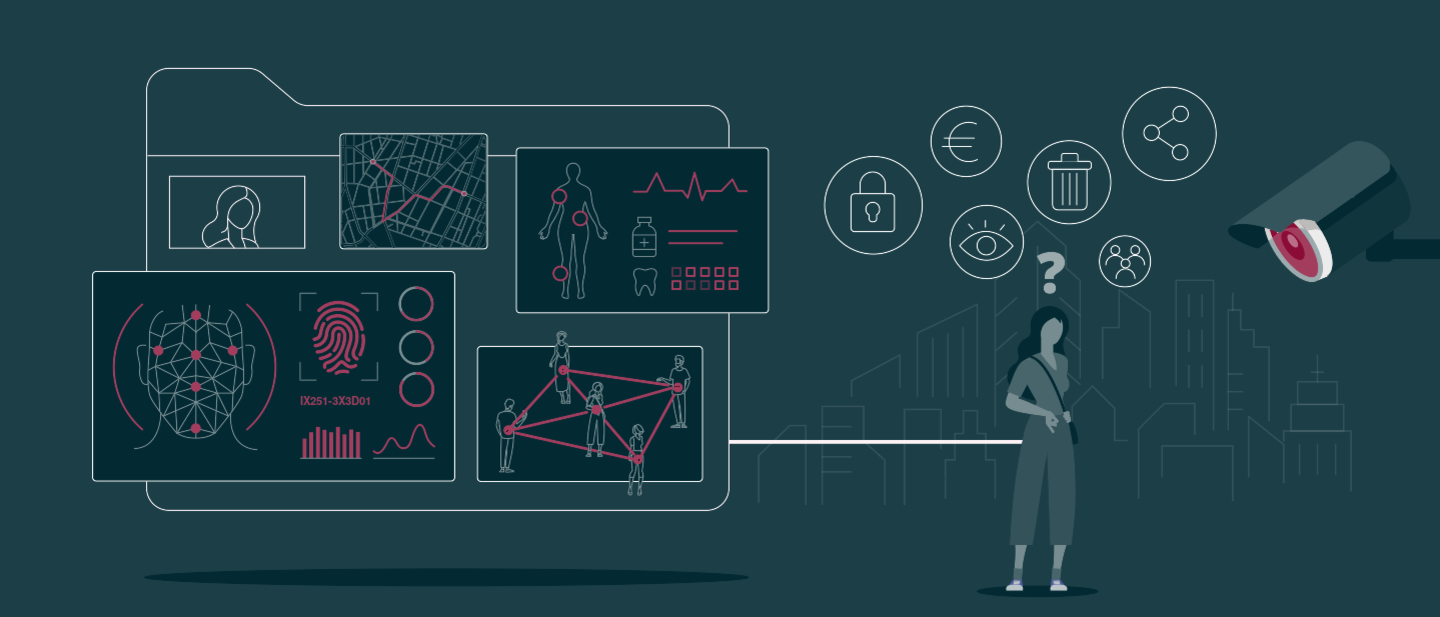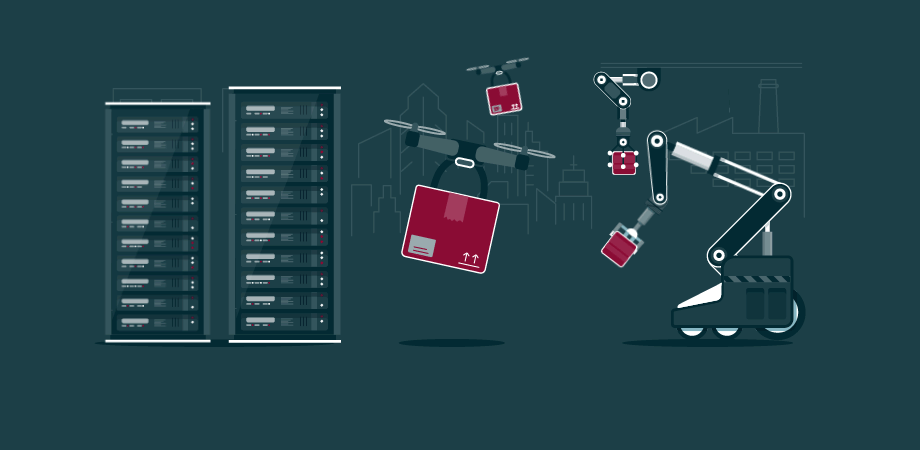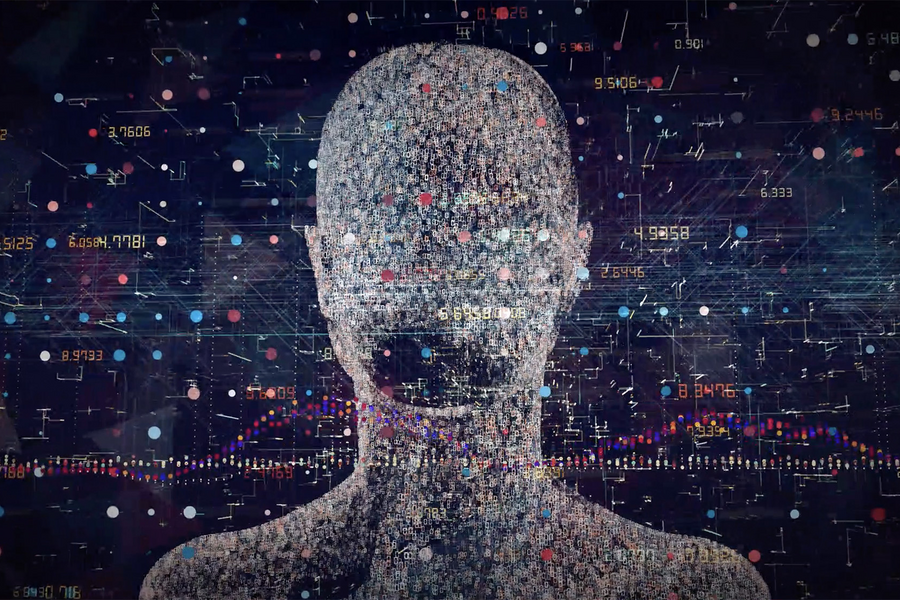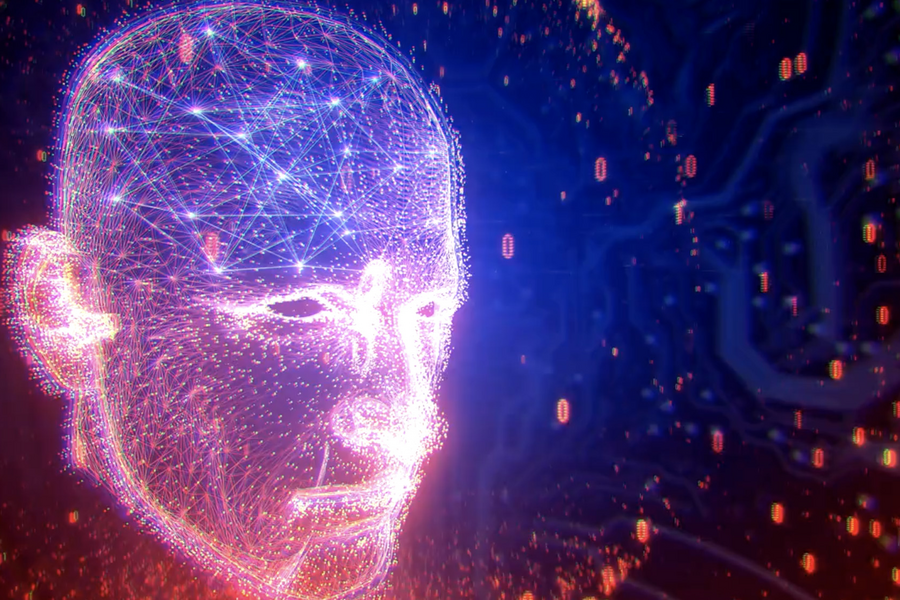Veröffentlicht: 12.11.2020

Wie wird KI unser Leben verändern?
Wir leben in einer Welt, in der wichtige, lebensverändernde Entscheidungen zunehmend von Algorithmen getroffen werden. Es ist daher entscheidend, dass globale Governance-Institutionen eingerichtet werden, um die Entwicklungen in Richtungen zu lenken, die den Menschen zugutekommen, uns dabei helfen, unsere Fähigkeiten zu entwickeln und einen Mehrwert für unser Leben zu schaffen. Was sind die Herausforderungen und Chancen von KI – und wie können wir das, was wir bisher gelernt haben, am besten anwenden?
1. Transparency & Accountability
of decisions to lend money to SMEs are fully automated1
- Challenge
- Opportunity
- Learning
How can an algorithm value humans and steer decision-making?
It looks as though countries and organizations will increasingly replace human judgment by algorithms, using scores to rate individuals based on surveillance and big data. Citizens with poor ratings may be limited for mortgages, education, finance, health insurance, and more. Algorithms that approve loans have been found to be biased towards white applicants, e.g. using data based on ZIP codes. Lack of transparency may translate into general lack of trust.
Fast, accurate AI can improve human lives
More transparent AI forces companies to evaluate governance frameworks and processes. With core principles redefined, they can take control of AI and exploit its full potential. Algorithms can be faster, more accurate, and fairer in decision-making than humans, as they can take multiple outcomes into consideration in split seconds, resulting in decisions that can be tested and optimized. Autonomous cars, for example, free from the fallibility of humans, will drive more safely, while in hospitals AI machines tirelessly carry out medical procedures around the clock.
The process must be fair to maintain consumer trust
We need a healthy, transparent exchange between researchers, policymakers, and industry. Humans must be seen to be in control, constantly reviewing models and refining processes. AI machines should be required to provide explanations that are auditable by humans; AI builders must be aware of the long-term implications of their work. Operators and producers must take responsibility and be answerable for the decisions taken by AI systems, in particular in high risk applications.
2. Privacy and data governance
of consumers feel entitled to cash compensation for personal data breaches2
- Challenge
- Opportunity
- Learning
How is our personal data being shared and used?
Algorithms may be poorly designed and managed. Mistrust arises when citizens don’t know how personal data is accessed, shared, and exploited. In the medical sector, for example, we need data governance and a regulated framework that controls how data is shared, e.g. in treating cancer or for results of scans. Medical innovations are built on such data and on patients’ willingness to share it to benefit future scientific developments.
Anonymized data can automate and optimize processes
In the healthcare sector, for example, AI improves consumer experience while enabling medical breakthroughs. AI automates healthcare processes, from detection and diagnosis, to surgery and post-operative care. It alleviates staffing issues and carries out procedures with a reduced margin for error. By anonymizing data, AI ensures information can be used securely and ethically, reducing individual risk and creating an environment where innovation is supported by an ethical framework.
We’re more willing to share data if asked first
To increase consumer trust, we need tools that address data privacy and governance. Individuals are more willing to share data if asked first. We need the right to access, manage, and control personal data, and to know how it’s analyzed and used. If innovations rely on such data, both public understanding and the regulatory environment for data sharing need improvement. To keep pace with developments in AI, we urgently need standardization and fair regulation that balances rules, freedom, competitiveness, and innovation, and which is based on ethical values.
3. Technical robustness and safety
organizations discovered data outside designated secure locations over 12 months2
- Challenge
- Opportunity
- Learning
How do we know AI machines are secure?
AI systems need protection against cybersecurity challenges. Hackers access machines to extract and manipulate information; they can trick machines into seeing things that don’t exist. It’s possible to hack autonomous vehicles or military drones to introduce false data, or to potentially influence systems so biases are inherent in decision-making processes. Cybercriminals can use ML-enabled social engineering to collect confidential personal information, for example, to encourage money transfers.3
AI can be used to protect machines against hackers
If businesses invest in internal cybersecurity, embrace security by design, and ensure employees are digitally literate, hackers’ ability to discover vulnerable points of entry through AI can be curbed. AI can help detect and mitigate threats, building resilience into operations, revealing vulnerable points of entry, and predicting adversarial behavior. If AI can be taught to continuously learn and adapt its detection mechanisms, it will be better able to help prevent malicious attacks.3
We must teach AI systems to help increase security
Organizations must put AI at the core of their cybersecurity strategies. New integrated systems are needed that cooperate in complex environments to help improve identification, analysis, and detection of threats. These systems must be programmed to learn what to do in hostile circumstances and to react appropriately. Interdisciplinary standards, best practices, and tools will form a better understanding of AI mechanisms and help increase the robustness and security of AI systems and models.
4. Diversity, fairness and inclusiveness
new jobs to be created by AI by 20224
- Challenge
- Opportunity
- Learning
Will automation destroy millions of jobs?

There are fears about how AI is affecting the economy, destroying millions of jobs and increasing the wealth gap. In its “Future of Jobs 2018” report, the WEF claimed that by 2025 more than half of all today’s workplace tasks would be performed by machines.4 AI is set to replace humans in many sectors including transport, accounting, and clerical work, as well as in industry. The main challenge to companies and governments will be to retrain human workers.
AI can improve productivity and create new human jobs
According to the WEF, AI will create up to 133 million new jobs by 2022.4 The result will be more highly skilled workers with more interesting work, including data analysts, software developers, and social media specialists, as well as those working in jobs which require “human traits,” such as teachers. Market research company Forrester and management consultants PwC predict that automation will create new business opportunities which must be fostered by government policy and embraced by employees.5,6
People need help to adapt and thrive in a fairer society
With significant investment in training, and new job creation across industries and business sectors, the risk of significant job shortages can be avoided. Companies must become learning institutions, equipping employees with new core skills so they can benefit from new working models. Newly skilled workers, minorities, and under-represented communities must all be part of the discussion, sharing benefits and prosperity in a fairer, more equal society.



